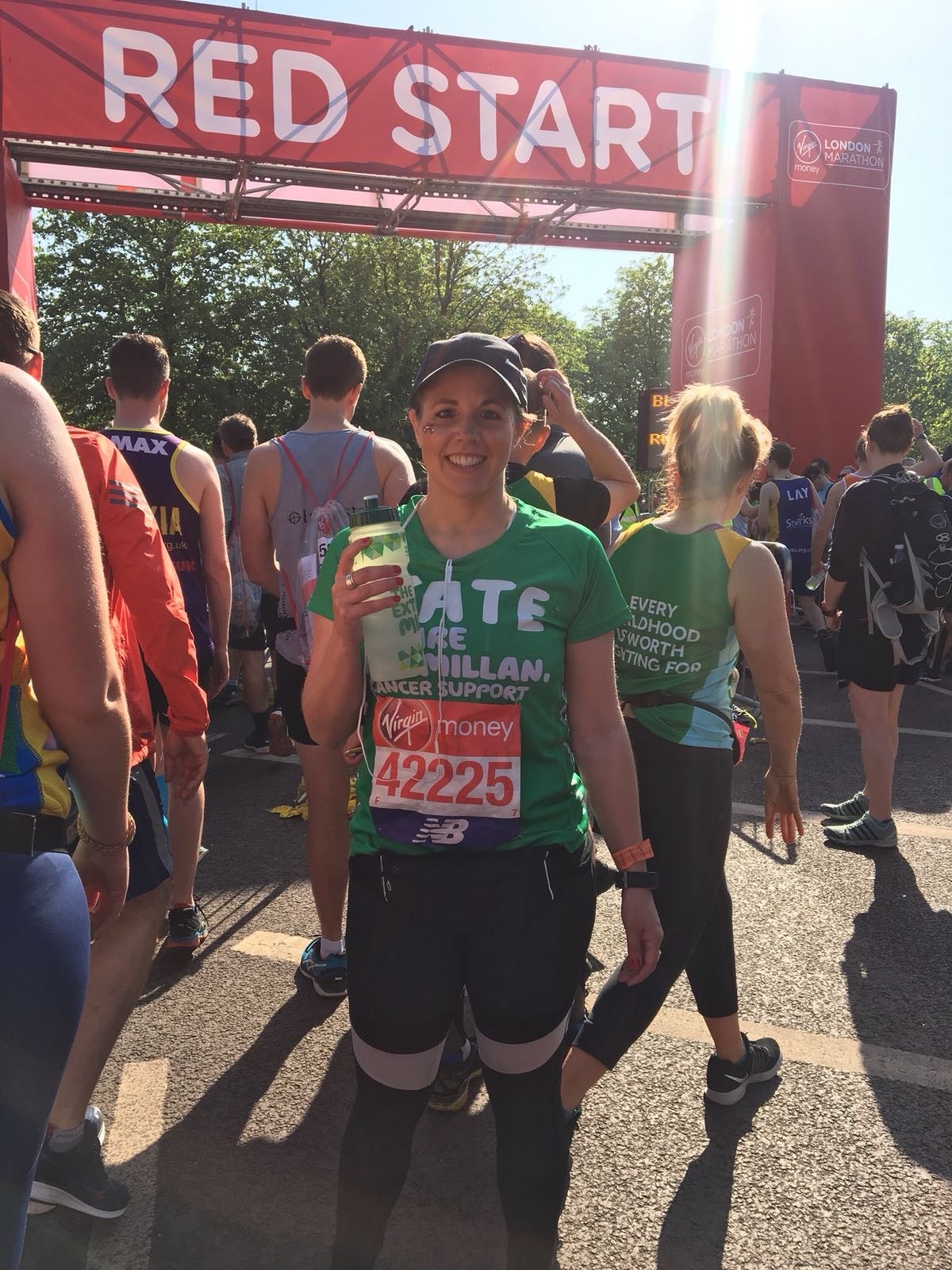Running the London Marathon for my father’s charity was incredible. I’m sad it may miss out on funding this year
It’ll still be a wonderful community effort, even if people aren’t together. But mass participation events are a huge factor in charities reaching their targets


When I signed up to run the London Marathon in 2018, it was driven by a desire for the medal (and glory, of course) – but it was also a chance to give back.
My dad had been diagnosed with cancer in 2013, and I saw first hand the work medical staff and charities did to help patients and their families through the most challenging time of their lives. It was an easy decision – all I had to do was get myself round 26.2 miles while dad was having to endure chemotherapy and brain biopsies.
I didn’t sleep a wink the night before and, when I got out of bed, my legs were already jelly. I felt like I’d hit a wall before I’d even started. But I don’t think I’ll ever forget the feeling of camaraderie at the start line. It seemed like an age before my group started the slow shuffle out of Blackheath but in that time I chatted to other runners and we found ourselves willing each other on like we were the elite.
It turned out to be the hottest marathon on record. I made my first stop at mile three and, let me tell you, it was an endurance test for the rest of the day. I saw runners dousing themselves in water, pausing every 100 metres and even collapsing on the kerbs. But each time anyone faltered, someone else would pass and pull them along. I didn’t care that it ended up taking me six hours because the buzz of the crowd, my friends and the charities shouting the name on the back of my t-shirt kept my non-runner legs ticking over to the finish line.
The most magical moment happened just before the end. I’d seen on the back of a runner’s top at mile 19, she was also running for her dad. I trundled past shouting “me too, good luck”. In the final mile, I spotted her again and tapped her shoulder. We were both ruined. So we walked the final stretch down Birdcage Walk together, chatted about our dads and sprinted the last 100 metres. It was an emotional end and unexpected friendship formed when we both had nothing left in the tank.
It’s sad that this year's runners won’t experience the same pulling together a large event brings. Like everyone else, the London Marathon has had to adapt to the restrictions imposed because of Covid-19 and, with normal mass participation events off the cards, it’s going virtual. On Sunday, 45,000 runners will take part in The 40th Race, running it their way, whether that means being dropped 26.2 miles from home and running back, running sections with friends or just heading out for a very long walk. A sort of running together but effectively alone. Yet, in these strange times, we’ll adapt with family and friends cheering along, runners documenting their journey on social media and community spirit rising amidst the worst global challenge most of us have seen. The hope is it will still be a huge community event, albeit a very different one.
This year, though, the marathon is not only an endurance test for runners but also over 15,000 charities relying on vital fundraising. Last year, the marathon set a new world record for the most raised on an annual single-day fundraising, reaching over £66.4m for charity. The marathon sponsor, Dementia Revolution, ran a year-long campaign to get runners onboard, raising over £4m, the most successful partnership in the marathon history. This year, current estimates are that the charity sector is facing a funding shortfall of £10bn. Charities like Macmillan Cancer Support, Cancer Research UK and the British Heart Foundation have all muted that jobs will be lost due to a dramatic drop in funding. And, with murmurs that one in 10 charities will face bankruptcy by the end of the year, it’s looking bleak for these invaluable services at a time when we need them most.
While the scale of these losses may not have a personal impact right now, like my family, you never know when you may need to turn to them for help. Less funding for charities means less capacity to help those going hungry, facing illness, or financial and job insecurity. Charities are vital on any given day but, in the time of Covid-19 and it’s ongoing destruction, they are essential.
Mass participation events are a huge factor in charities reaching their targets. The good news is that technology is bringing people back together in ways we could never have imagined. Charities are moving a lot of events to virtual participation, likely to continue with the positive uptake. Those with equipment can cycle from home, people are climbing stairs the equivalent of climbing the Eiffel Tower, or doing umpteen sit ups. Fundraising is far more accessible than ever before and, unlike the London Marathon cap, it has a potential to lure in an even larger crowd.
But can it ever be as popular as a real gathering? In all honesty, no, but, the hope is that in the midst of social distancing, people are still hungry for challenges and that charities can continue to adapt to keep engaging people online to keep their funds afloat. And, for anyone sweating it out at home, it’s still a once-in-a-lifetime opportunity to be a fundraising hero.
Kate Leahy is a freelance travel and lifestyle journalist
Join our commenting forum
Join thought-provoking conversations, follow other Independent readers and see their replies
Comments



Bookmark popover
Removed from bookmarks